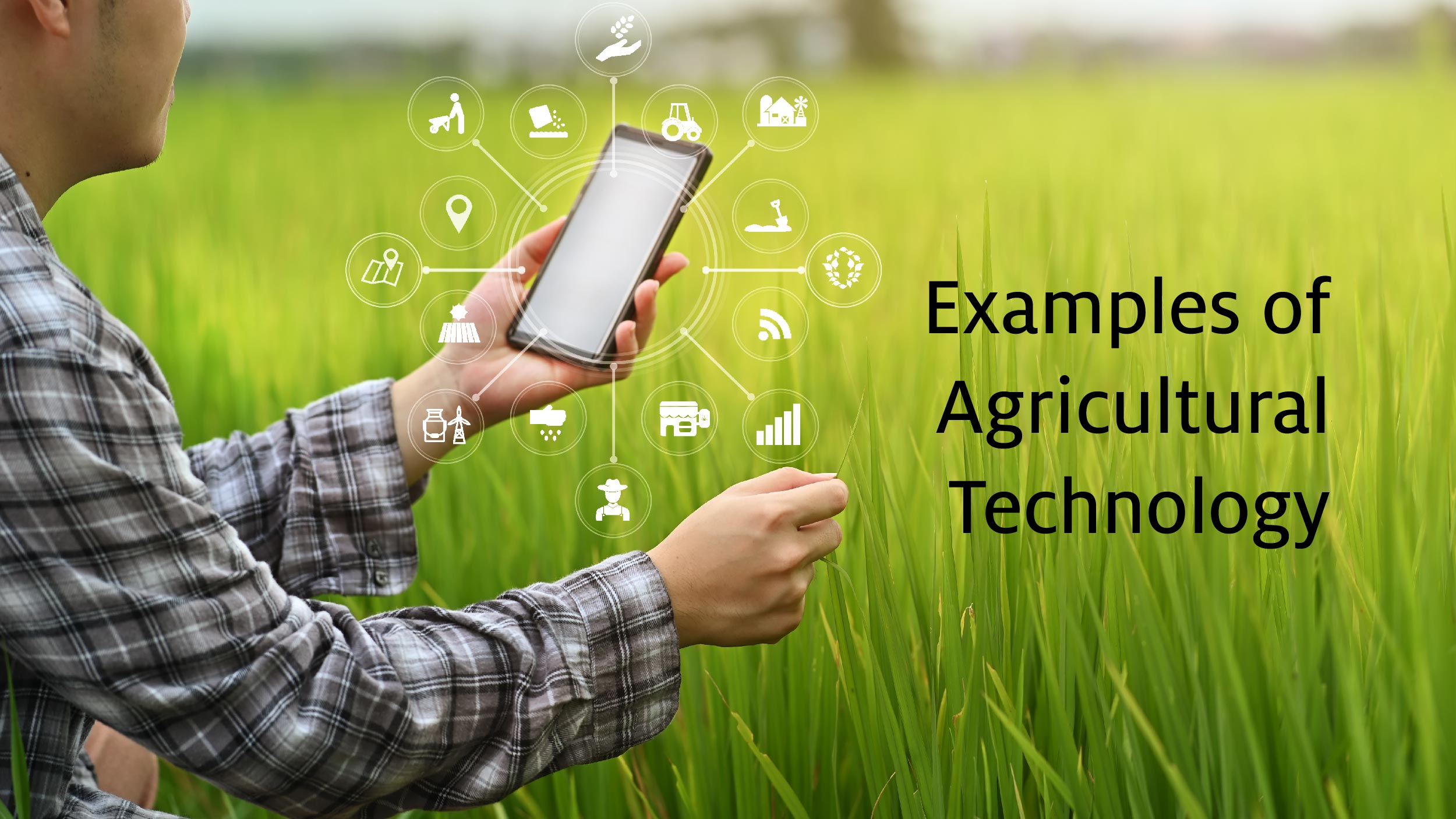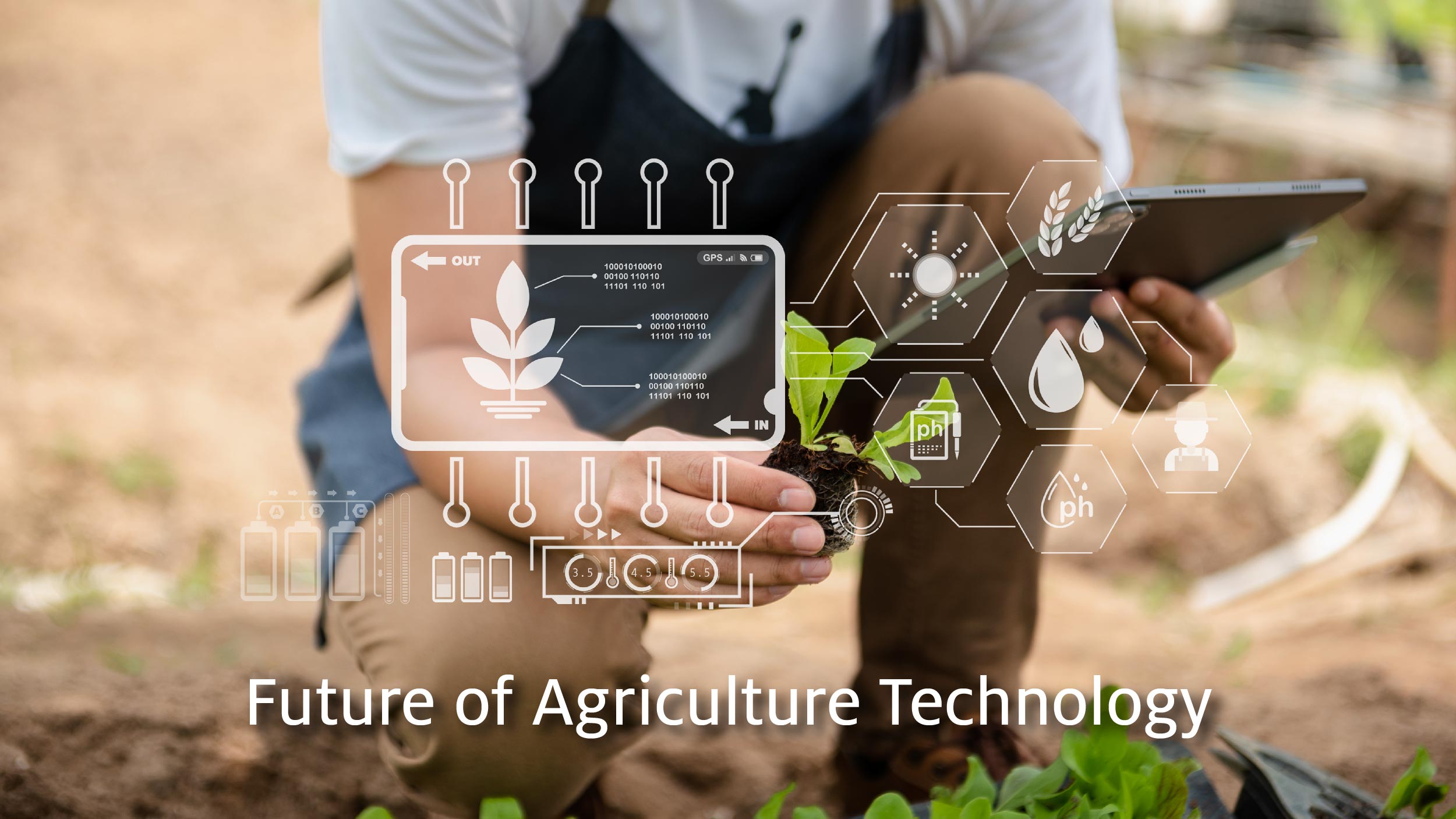Agriculture, the backbone of our global food system, faces numerous challenges such as limited resources, climate change, population growth, and the need for sustainable practices. These challenges call for innovative solutions that can optimize productivity, reduce environmental impact, and ensure food security for a growing population.
Agritech, the convergence of agriculture and technology, offers a transformative solution to address the challenges faced by the agricultural industry. Let’s dive in and learn about it.
What is Agritech?
Agritech, also known as ag-tech or digital agriculture, brings the power of technology to farming. It’s not just about fancy gadgets; it’s about using tools like automation, biotechnology, and data analysis to make farming smarter and more efficient.
The significance of ag-tech is clear when we consider the challenges facing agriculture today. With the world’s population expected to hit 9.8 billion by 2050, agritech steps in to help meet the growing demand for food. By optimizing farming methods, ag-tech allows farmers to produce more food sustainably while also increasing their profits. It’s not just about making farming easier; it’s about making it more environmentally friendly and economically viable. Additionally, by automating repetitive tasks and harnessing data insights, ag-tech improves the accuracy of forecasting, helping farmers plan and manage their crops more effectively.
Benefits of Agritech
Agritech is transforming agriculture and revolutionizing the way farmers work, offering a multitude of benefits that elevate crop production and enhance the livelihoods of farmers.
- Increased Crop Yield and Quality: Through precision farming techniques empowered by data analytics, machine learning, and AI, ag-tech empowers farmers to make data-driven decisions in real-time. This leads to higher crop yields and superior crop quality.
- Resource Optimization: Agritech optimizes the utilization of vital resources like water, fertilizers, and pesticides. Smart irrigation systems equipped with IoT technology monitor soil moisture levels and weather conditions, ensuring efficient water management and minimal waste. Additionally, AI-driven algorithms offer precise fertilizer recommendations, reducing nutrient runoff and environmental harm.
- Enhanced Sustainability: Embracing agritech fosters sustainable farming practices. Methods such as vertical farming, hydroponics, and organic farming minimize reliance on pesticides, conserve water, and maximize land usage. Furthermore, ag-tech promotes regenerative practices like cover cropping and soil health management, nurturing soil fertility, and preventing erosion.
- Increased Efficiency and Cost Savings: Automation and robotics streamline labor-intensive tasks, cutting down on manual labor and enhancing operational efficiency. Robots equipped with advanced technology handle activities like planting, weeding, and harvesting, leading to significant cost savings and boosted productivity.
- Data-Driven Decision Making: Agritech harnesses the power of data analytics and AI to provide farmers with invaluable insights. By analyzing data on soil conditions, weather patterns, and crop health, farmers can make informed decisions to optimize farming practices, boost yield, and minimize waste.
- Market Access and Financial Benefits: Agritech platforms facilitate direct market access for farmers, reducing reliance on intermediaries and connecting them directly with buyers. This opens up avenues for improved profits and financial stability. For instance, platforms like Twiga Foods in Africa empower farmers by aggregating market demand, enabling them to make investments with assured markets.
- Improved Livelihoods: By enhancing productivity, reducing post-harvest losses, and creating employment opportunities, agritech has the potential to uplift the livelihoods of farmers. Adopting ag-tech solutions enables farmers to augment their income and contribute to poverty alleviation efforts.
Also Read : 6 Best Digital Banking Trends You Should Know in 2024
Examples of Agricultural Technology

Below are some of the prominent examples of how agritech helps modern agriculture.
- Precision Monitoring: Utilizing satellite and drone imagery alongside IoT sensors to monitor crop health and soil conditions. The data collected helps optimize irrigation schedules, predict weather patterns, and digitize pest control efforts.
- Automated Equipment: Modern tractors are outfitted with advanced features such as GPS navigation, automated steering systems, and hydraulic attachments, enhancing efficiency on farms. Autonomous tractors further streamline operations, minimizing the need for human labor. Additionally, robotic equipment is utilized for various tasks including picking, monitoring, and planting crops. Notably, IronOx’s crop-assisting mobile robots boast impressive capabilities, handling significant loads, navigating with onboard laser scanning, and assessing individual plant health.
- Smart Greenhouses: These structures create controlled environments suitable for vertical farming, conserving space, extending the growing season, and yielding higher crop outputs. Smart greenhouses help resolve conflicts between farmers and native species and facilitate cultivation in areas otherwise unsuitable for plant growth.
- Livestock Management: Systems equipped with sensors and technology to track the health of animals on farms. Automated milking systems allow cows to determine their milking schedules, offering farmers flexibility and aligning with natural rhythms.
- Supply Chain Management: Focuses on efficiently integrating producers, suppliers, distributors, and customers in the food production and distribution chain. Technologies such as blockchain, big data analysis, and machine learning enable the tracking of produce from farm to table. Improved supply chain management enhances resource utilization efficiency, reduces waste, enables accurate forecasting, and enhances customer satisfaction.
- Biotechnology: Enhances crop yields by imbuing plants with beneficial traits through genetic engineering. This technology makes crops resistant to pests, droughts, and other environmental stressors. Advanced breeding methods like marker-assisted selection aid farmers in selecting plants with desired characteristics. Additionally, biotechnology enables the engineering of fertilizers; for instance, Azotic replaces nitrogen fertilizers with nitrogen-fixing bacteria for a more environmentally friendly solution.
Future of Agriculture Technology

Agritech is a transformative solution for agriculture, leveraging technology to enhance crop yield, resource management, sustainability, efficiency, and market access. It revolutionizes farming practices, ensuring sustainable food production, addressing food security, and supporting farmer well-being. Embracing this technology fosters a resilient, efficient, and sustainable agriculture sector, meeting global food needs while safeguarding natural resources for future generations.




